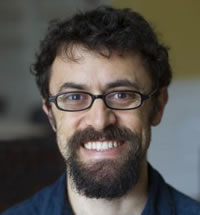Education and the Future of Work
Friday, Sept. 29 to Saturday, Sept. 30, 2023
Liberal Arts Conference
Join scholars from across the country as we reflect on the forces that are shaping education and the future of work. This national conference will be held in person on the Barrie Campus of Georgian College.
Call for papers
Education and the Future of Work
The world of work is rapidly changing, and postsecondary education is changing
along with it. In Canada and many other countries around the world, the
COVID-19 pandemic unleashed waves of job losses and furloughs, vast new
programs of public support for workers and employers, and experiments in
remote work and job-sharing. It also highlighted the crucial role played by
essential workers, including frontline health-care workers and educators, who
carried out their work in the face of arduous conditions, wage freezes and
faltering public systems. The pandemic likewise accelerated the adoption of
new digital apps and platforms in the realms of education, health care,
government and business. These tools enabled online learning and remote
work, and also created new opportunities for entrepreneurialism. At the same
time, they led to the “uberization” of some jobs, allowing businesses to hire
independent contract workers instead of employees. All of this has unfolded in
the face of a demographic crunch that is resulting in a flood of retirements and a
shrinking number of the young workers needed to sustain both economic
growth and an increasingly strained social state.

As educators, we face great challenges in trying to grasp and respond to these seismic shifts in the work landscape. On the one hand, our job is to help our students thrive in the emerging world of work, while also helping them to identify and resist changes that threaten their well-being. But we’re also compelled to reckon with how the same forces are transforming the conditions of our work, for better or for worse. These are the some of the central concerns that we’ll explore at this Liberal Arts Conference.
Discussion topics
- What did we learn from the pandemic about online learning? How does this delivery mode affect learning? How does it affect teaching?
- What does remote teaching mean for the workplace culture in colleges, universities and elsewhere? What impact does it have on our work relationships, our experience of connectedness, and our sense of agency?
- How will increased online course delivery impact equity, diversity and inclusion for faculty and students? Do online learning environments level the playing field for students from marginalized groups? Or could they cause us to lose sight of our diversity?
- What is the future of care work? How can we build a care economy that will meet the future needs of our society?
- How will artificial intelligence (AI), including writing bots like ChatGPT, change the teaching profession? How will they change what it means to learn?
- Do programs like a universal basic income (UBI) offer a realistic response to looming job losses through automation? Could a UBI free people to pursue new educational and career opportunities? What are the dangers behind such approaches?
- What opportunities will the looming shortage of workers hold for young students, and how can they mobilize to exploit these opportunities?
Abstract submission
We invite scholars interested in proposing a paper for presentation to submit an abstract and a short bio.
The abstract submission form requires the following information:
- Name
- Contact information
- Abstract (maximum 300 words)
- Bio (maximum 100 words)
The abstract submission deadline is Monday, July 31.
Keynote speaker

Alex Gourevitch
Alex Gourevitch is an associate professor of political science at Brown University and author of From Slavery to the Cooperative Commonwealth: Labor and Republican Liberty in the Nineteenth Century (Cambridge University Press, 2015). Professor Gourevitch has established himself as an important voice in current debates over freedom, work, leisure, and the right to strike. His written work is published broadly in leading academic journals, as well as magazines, like Jacobin, Dissent and Salon.
Join us in the evening of Friday, Sept. 29 for Alex Gourevitch’s keynote address, AI, UBI, and Other Post-Work Fantasies.
Fees and registration
Register by Monday, July 31 to receive the early bird discounted rate! After July 31, standard rates apply.
Please note, all fees for the Liberal Arts Conference are listed in CAD.
Friday only
- Includes: Evening reception, dinner, and keynote address
- Rates: $55 (early bird) or $65 (standard)
Saturday only
- Includes: Light breakfast, lunch, concurrent sessions, and panel presentation
- Rates: $125 (early bird) or $150 (standard)
Full conference (Friday and Saturday)
- Includes: Evening reception, dinner, and keynote address (Friday) plus light breakfast, lunch, concurrent sessions, and panel presentation (Saturday)
- Rates: $160 (early bird) or $199 (standard)
Schedule of events
Friday, Sept. 29
The Campus Gallery (D140)
4:30 to 5:45 p.m.
- Wine and cheese reception
5 to 5:10 p.m.
- Amy Bagshaw presents
Angela Aujla exhibition: Lessons Learned
Georgian Dining Room (E100)
6 to 6:40 p.m.
- Dinner
6:45 to 7 p.m.
- Announcements and introductions
- Greetings: Dr. Yael Katz, Vice President, Academic, Georgian College
- Land Acknowledgement: Corinne Whitney
- Keynote introduction: Dr. Scott Staring, Professor, Liberal Arts, Georgian College
7 to 8:15 p.m.
- Keynote address: Dr. Alex Gourevitch, Associate Professor of Political Science, Brown University
AI, UBI, and Other Post-Work Fantasies
Saturday, Sept. 30
Automotive Business School of Canada (ABSC) Event Space (N302b)
8 to 9 a.m.
- Coffee and snacks
9 to 9:20 a.m.
- Announcements and introductions
- Greetings: Dr. Anne-Liisa Longmore, Dean, Liberal Arts, Georgian College
- Land Acknowledgement: Corinne Whitney
9:30 to 10:50 a.m.
- Concurrent sessions 1
- Session 1A (N102): Confronting Contemporary Social Incohesion
- Paul Corey: Labouring in the Liberal Arts Today
- Ed Ksenych: The Mood of our Time: Anomie and Post-Modern Society
- Scott Staring: ChatGPT and the Commodification of Higher Education
- Session 1B (N202): Bold Experiments in Teaching
- Anne-Liisa Longmore: Fostering Leadership Identity Emergence in Third Space: Exploring the Efficacy of a Transformative Teaching and Learning Model
- Elinor Bray-Collins, Sara Hassan and Isabel Sousa: Systems Thinking for a Sustainable Future: Reflections from a Virtual, International, Classroom
- Trudy Bergere: Learning and Ageing in a Post-Secondary Context
- Session 1A (N102): Confronting Contemporary Social Incohesion
11 a.m. to 12:20 p.m.
- Concurrent sessions 2
- Session 2A (N102): Critical Approaches to AI and Inclusivity
- Ian Ross Singleton: Artificial Intelligence Such as ChatGPT Can Speak Other Languages. Is It Able to Speak Different Dialects?
- Liane Cheshire: “Slow Down for the Intersections!”: A Critical Response to the Application of Intersectional Fairness to AI design
- Nergis Mazid: Necessity of Decolonizing Post-Secondary Pedagogy in Light of AI
- Session 2B (N202): Examining the Workplace and its Practices
- Howard Doughty: “Workplace Stress is Driving Me Nuts!”
- Clem Bamikole and Sean Elliott: Balancing Skills Shortage and Work-Learn Challenges with Equity in Higher Ed: A Conundrum
- Daniel Travers: AI and Not-for-Profit Organizations: Challenges and Opportunities
- Session 2A (N102): Critical Approaches to AI and Inclusivity
12:30 to 1:45 p.m.
- Lunch (N302b)
1:45 to 3 p.m.
- Plenary panel (N302b)
- Anita Arvast, Professor of Liberal Arts, Georgian College, and Ontario Public Service Employees Union (OPSEU) Local 350 President
- Ian McCallum, Education Officer with the Government of Ontario, language teacher and member of the Munsee-Delaware Nation
- Jim Slotta, Professor and President’s Chair in Knowledge Technologies at the Ontario Institute for Studies in Education (OISE), University of Toronto
- David Tabachnick, Professor of Political Science, Nipissing University
3:10 to 4:30 p.m.
- Concurrent sessions 3
- Session 3A (N102): Re-Thinking Teaching Approaches
- Jordan PQ Youd: Liberal Arts Education as Human Practice
- Anastasia Boldireff: Pedagogical Strategies, Sonnets and Zoom: Reflections on teaching student-teachers during COVID-19
- Tracy Mitchell-Ashley and Iain Robertson: Literacy in an Artificially Intelligent World: The Growing Importance of AI Literacy
- Session 3B (N202): Academic Integrity in the Age of AI
- Eleanor Gittens and Isabelle Deschamps: Faculty Insights into Academic Integrity: Perceptions, Challenges and Opportunities for Change
- Hanna Shrolyk and Corinne Whitney: Violating AI by Using AI: Student and Faculty Perspectives
- Hang-Sun Kim, Stefana Gargova and Owen Meunier: Foreign Language Learning in the Age of Generative AI
- Session 3A (N102): Re-Thinking Teaching Approaches
4:40 to 4:50 p.m.
- Closing remarks (N302b)
Accommodations
Allure Hotel & Conference Centre, Ascend Hotel Collection
- 20 Fairview Road, Barrie, ON L4N 4P3
- 705.722.0555
Monte Carlo Inn – Barrie Suites
- 81 Hart Drive (Dunlop Street and Highway 400), Barrie, ON L4N 5M3
- 705.734.0070